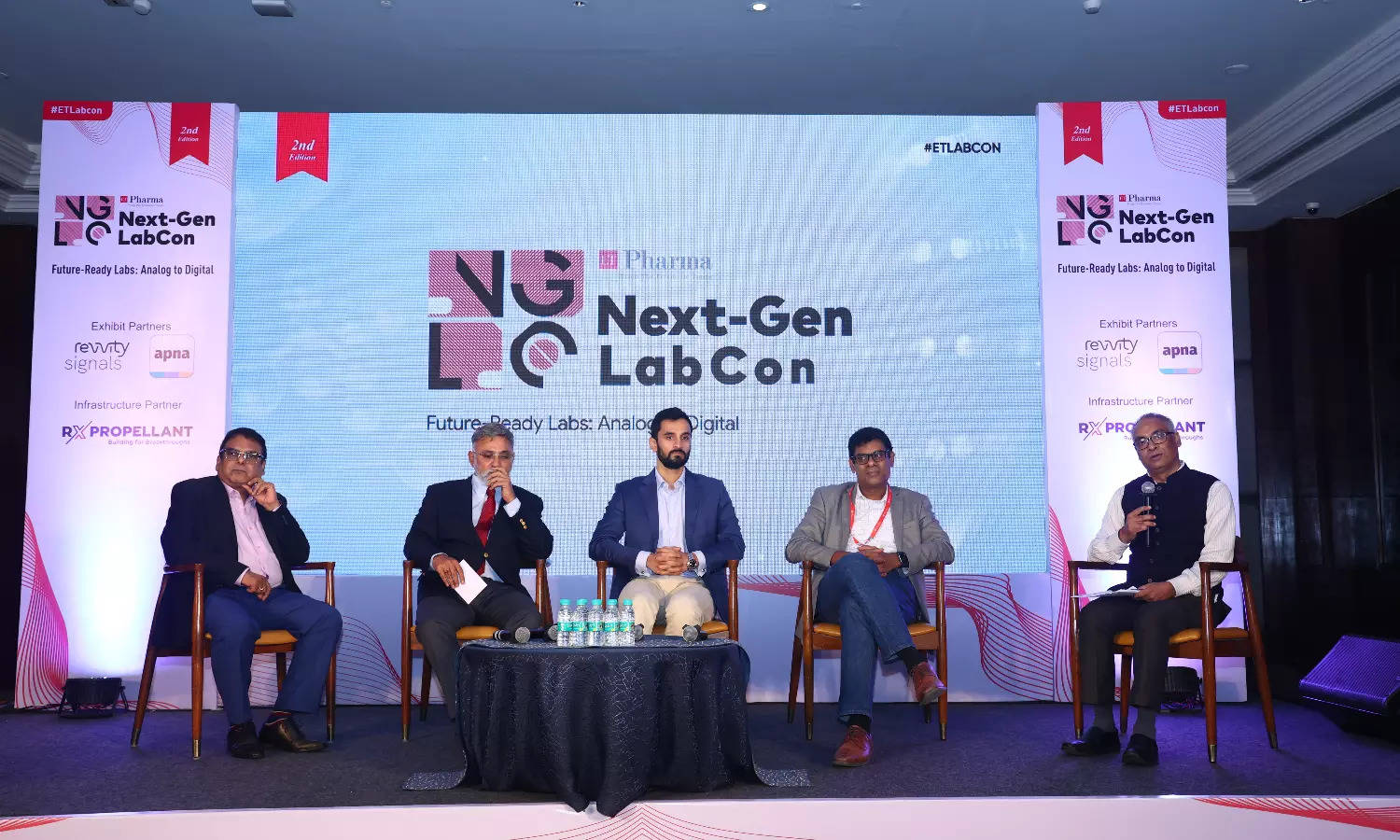
By Prathiba Raju and Abhijeet Singh
Hyderabad: As the global pharmaceutical market undergoes a complete overhaul due to geo-political tensions, consumer fragmentation, and shifts in purchasing power the Indian pharmaceutical industry is positioning itself to retain the title of “pharmacy of the world” and extend its benefits to other areas. However, achieving these ambitious goals requires a rapid expansion and upscaling of existing laboratories in the country, which in turn will ensure a stable pipeline for both drug development and their production, informed top pharma experts at the second edition of the ET Pharma Nex-Gen LabCon conference.
Addressing these challenges and exploring potential solutions, the inaugural panel discussion on ‘Indian Laboratories – What Does It Take to Go Global?’ featured Annaswamy Vaidheesh, Executive Chairperson of Suven Pharma; Dr KVS Ram Rao, CEO & Joint Managing Director of Granules India; Akhil Ravi, CEO of Aurigene Pharmaceutical Services; and Dr. Sauri Gudlavalleti, COO of Sai Lifesciences. The session was moderated by Vikas Dandekar, Editor of ETPharma.
Initiating the discussion on how to upscale Indian laboratories, Dr Gudlavalleti stressed, “We in India need to adapt to a much higher degree of speed and must double or even triple the rate at which we work. Secondly, the next biggest imperative will be talent, especially as global pharma services and exports increasingly shift toward India, there is a huge opportunity for the next generation to enter this Industry along with these two we need to leapfrog use of technology both physical and digital.”
Akhil Ravi highlighted that even though there are many big players, there are always customers who are underserved. He stressed the need to identify and serve these customers based on specific skill sets. He also pointed to the significant opportunities in innovation, noting that 70 per cent of clinical trials for small molecules are now being conducted by small biotech firms.
“The supply chain leaders are looking for alternatives to reduce the risk in their supply chain and India is a credible option,” he added.
Sharing his experience another panelist Annaswamy Vaidheesh emphasised, “We need to focus on CDMO 2.0 because what we are doing is what was need in the 1.0 phase but with the coming of Biosecurity Act, ongoing tensions between US and China and with Europe not in a condition to manage their inflation the tide is turning which means they are under pressure to ensure risk mitigation of inhibitors but they also want to solve this for a long term by having a number two in place of China.”
“If something is going to limit the country from grabbing this opportunity, it could be the lack of adequate talent because this Industry doesn’t not have talent to deal with the kind of explosion we are going to see in the next 10-15 years,” Vaidheesh added.
Underlining some critical gaps and challenges which the Industry is expected to face, Dr Ramao Rao voiced, “ There is some Geo-political tensions among others so it’s not a natural choice that everybody is coming to us (India). We need to accept that our manufacturing is not too advanced but we are quite capable of improving it which will eventually help us to be a differentiated partner with China.”
Additionally, Rao noted that AI is going to change the way the world is living and unfortunately the Indian pharmaceutical Industry is very slow in adopting the dynamics of such changes.
“By 2030 commitments with respect to carbon footprints might become a norm across the globe for business and with some of the country going to levy carbon tax by 2026 the conventional way of doing a CDMO or generic business is going to take a heat,” he added.
Over the challenge of transferring and sharing knowledge to the upcoming talent Dr Gudlavalleti proposed to have “Apprenticeship initiatives by industries, upgrading to electronic lab notebooks, electronic DPRs (Drug Product Registration Systems) and identifying electronic ways of doing QCs (Quality Control Systems) to digitally record a data which is easy to store and flexible to use.”
Adding to it Ravi commented, “Knowledge management platforms are very weak however searching for knowledge has become much easier so there should be new way for mentorship where we should teach how to find information
Concluding the discussion with the current state of the CDMO Industry and its future Dr Gudlavalleti voiced, “India is largely in the intermediary stage where few companies have made the leap but there is a much more headroom to grow, when we will enter into drug products which is the next stage, is a question but in the next 5-10 years we will start to see some movement.
“When we talk about large molecules like oligos, peptides, cell and gene therapy the entire space is wide open, we have to find out our specific value add and considering our location and capabilities there is a good opportunity there as well,” the expert added.







